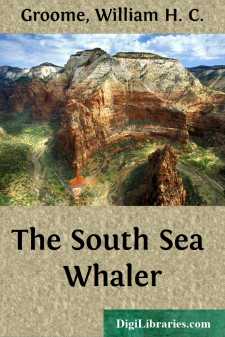Categories
- Antiques & Collectibles 13
- Architecture 36
- Art 48
- Bibles 22
- Biography & Autobiography 813
- Body, Mind & Spirit 142
- Business & Economics 28
- Children's Books 17
- Children's Fiction 14
- Computers 4
- Cooking 94
- Crafts & Hobbies 4
- Drama 346
- Education 46
- Family & Relationships 57
- Fiction 11829
- Games 19
- Gardening 17
- Health & Fitness 34
- History 1377
- House & Home 1
- Humor 147
- Juvenile Fiction 1873
- Juvenile Nonfiction 202
- Language Arts & Disciplines 88
- Law 16
- Literary Collections 686
- Literary Criticism 179
- Mathematics 13
- Medical 41
- Music 40
- Nature 179
- Non-Classifiable 1768
- Performing Arts 7
- Periodicals 1453
- Philosophy 64
- Photography 2
- Poetry 896
- Political Science 203
- Psychology 42
- Reference 154
- Religion 513
- Science 126
- Self-Help 84
- Social Science 81
- Sports & Recreation 34
- Study Aids 3
- Technology & Engineering 59
- Transportation 23
- Travel 463
- True Crime 29
On the Banks of the Amazon
Categories:
Description:
Excerpt
My school-boy days and friends.
I might find an excuse for being proud, if I were so,—not because my ancestors were of exalted rank or title, or celebrated for noble deeds or unbounded wealth, or, indeed, on account of any ordinary reasons,—but because I was born in one of the highest cities in the world. I saw the light in Quito, the capital of Ecuador, then forming the northern part of the Spanish province of Peru. The first objects I remember beyond the courtyard of our house in which I used to play, with its fountain and flower-bed in the centre, and surrounding arches of sun-burned bricks, were lofty mountains towering up into the sky. From one of them, called Pichincha, which looked quite close through the clear atmosphere of that region, I remember seeing flames of fire and dark masses of smoke, intermingled with dust and ashes, spouting forth. Now and then, when the wind blew from it, thick showers of dust fell down over us, causing great consternation; for many thought that stones and rocks might follow and overwhelm the city. All day long a lofty column of smoke rose up towards the sky, and at night a vast mass of fire was seen ascending from the summit; but no harm was done to the city, so that we could gaze calmly at the spectacle without apprehension. Pichincha is, indeed, only one of several mountains in the neighbourhood from the tops of which bonfires occasionally blaze forth. Further off, but rising still higher, is the glittering cone of Cotopaxi, which, like a tyrant, has made its power felt by the devastation it has often caused in the plains which surround its base: while near it rise the peaks of Corazon and Rumiñagui. Far more dreaded than their fires is the quaking and heaving and tumbling about of the earth, shaking down as it does human habitations and mountain-tops, towers and steeples, and uprooting trees, and opening wide chasms, turning streams from their courses, and overwhelming towns and villages, and destroying in other ways the works of men’s hands, and human beings themselves, in its wild commotion.
These burning mountains, in spite of their fire and smoke, appear but insignificant pigmies compared to that mighty mountain which rises in their neighbourhood—the majestic Chimborazo. We could see far off its snow-white dome, free of clouds, towering into the deep blue sky, many thousand feet above the ocean; while on the other side its brother, Tunguragua, shoots up above the surrounding heights, but, in spite of its ambitious efforts, has failed to reach the same altitude I might speak of Antisana, and many other lofty heights with hard names? but I fancy that a fair idea may be formed of that wonderful region of giant mountains from the description I have already given.
I used often to think that I should like to get to the top of Chimborazo, the way up looked so easy at a distance; but no one has ever reached its summit, though several valiant philosophers and others have made the attempt.
The mountain range I have described, of which Chimborazo was long considered the highest point, till Aconcagua in Chili was found to be higher, rises from the ocean in the far-off southern end of America, and runs up along its western shore, ever proud and grand, with snow-topped heights rising tens of thousands of feet above the ocean, till it sinks once more towards the northern extremity of the southern half of the continent, running along the Isthmus of Panama, through Mexico at a less elevation, again to rise in the almost unbroken range of the Rocky Mountains, not to sink till it reaches the snow-covered plains of the Arctic region....








